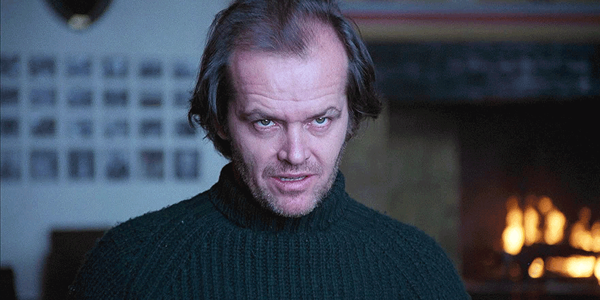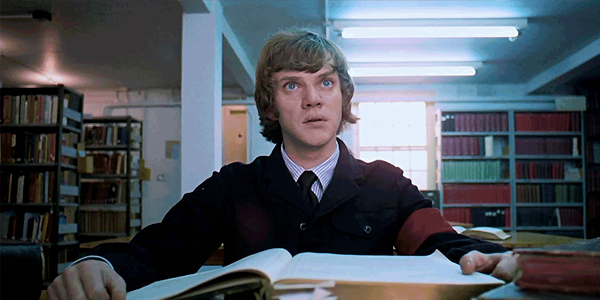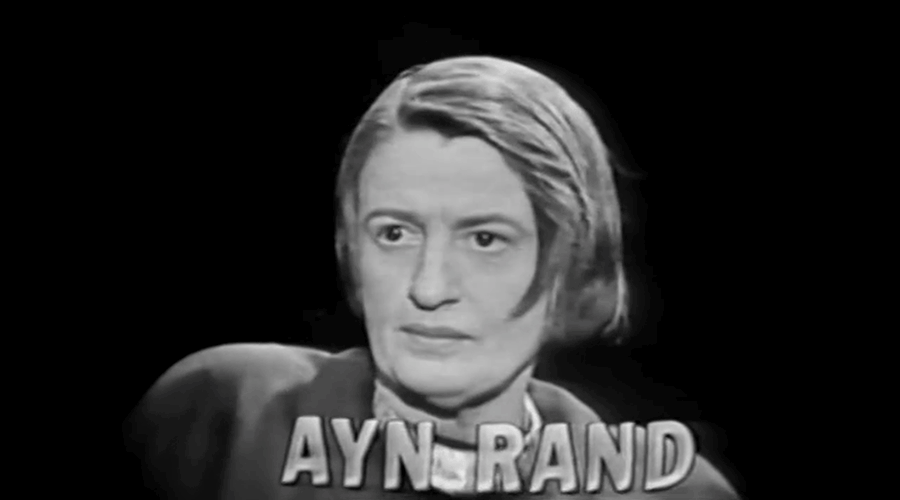Review: All Watched Over by Machines of Loving Grace

review | All Watched Over by Machines of Loving Grace
Another of Adam Curtis’s full-frontal assaults on contemporary culture, this BBC documentary is intensely cinematic throughout
by Michael Gaughn
February 13, 2021
Before diving in, I need to provide some context for why I’m reviewing a 2011 BBC series made up mainly of some pretty low-fi found footage. To the first point, when I stumbled upon this, Amazon Prime had labeled it as a 2020 release (which is when, I’m guessing, somebody spliced together the three episodes of the series). As for Point Two: This is, despite its lowly origins, the single most cinematic experience I’ve had in years.
Of course, I don’t need to be sold on watching anything with Adam Curtis’s name on it. He and Errol Morris (The Fog of War) are the two most innovative documentarians of recent times, and Curtis’s Century of the Self (about the rise of modern marketing—and social control—springing from the ideas of Freud’s nephew Edward Bernais), The Power of Nightmares (about September 11th and how Bin-Laden and the Americans essentially collaborated to create the myth of Al Qaeda), and HyperNormalization (about the consequences of embracing societal and virtual simplifications) are stunning, troubling, unequaled works. It’s impossible for anyone with an open mind to approach his series and not have their worldview turned on its head.
To define my terms: Most of what passes for documentary filmmaking in the mainstream (and by mainstream, I mean TV networks, cable channels, and, primarily, streaming services—and primarily, within streaming services, Netflix) is really the bastard child of any legitimate documentary impulse, being more exercises in propaganda, marketing, and entertainment than any valid attempt to truly document anything. The filmmakers tend to know what they think and feel about a subject before they begin the project then spend the duration of the film continually reinforcing what they already believe, using their certainty and insistence to get you to buy into it too.
That’s not Curtis. He poses things. While he has definitely done his due diligence, he also knows a video and audio presentation is a pretty flawed way of dealing with anything of substance, that, even if we won’t acknowledge it, we tend to go to media for a continual stream of diversions. But he also knows the importance of having an audience. So his series tend to be exercises in connecting up big things in unexpected ways, with some of those connections tentative, balancing his material between “this is” and “what if?” and, out of both a sense of responsibility and a desire to engage viewers in a way they’re not used to from TV, allowing for enough play that you ultimately have to think a lot of this through for yourself.
Obviously, that’s a deeply frustrating experience for anyone who’s used to being told what to think or doesn’t want to think at all, which is why Curtis is frequently labeled a “cult” personality by both his admirers and detractors. (How anyone can have a recurring presence on the BBC and still be considered cult is a mystery to me.) For others, like me, his work is consistently liberating, partly because it runs so determinedly against the mainstream and so adamantly refuses to go to pat places. For all his well-seasoned British manner, Curtis is beneath it all a punk.
One more digression before I jump in, but it’s essential: Curtis is very much the child (or spawn, depending on your viewpoint) of documentarian Bruce Conner, specifically of his breakthrough 1967 short film Report, which used found footage from the mass media to offer an alternative take on the Kennedy assassination. The whole found-footage thing has become commonplace of course—stiflingly so—but nobody was doing it when Conner came up with Report, which treats its subject both seriously and with a deeply subversive wit.
Curtis creates knowing full well that we’ve literally seen it all before—and that’s his whole point. Yes, we’ve seen it but did we get it? Did we just buy into the bright, shiny surface and the pre-packaged context or did we maintain a skeptical distance and at least try to treat it on our terms instead of theirs? The frightening answer, for almost everyone watching his series—and this is Curtis at his most disturbing—is undeniably No.
So Curtis isn’t for everyone (in fact, he’s for a pretty small subset of everyone). But everything he does is, again, intensely cinematic and, despite its sometimes harrowing subject matter, often entertaining—which helps explain his relative popularity. Someone could watch his series and not grasp a single fundamental point and still have a pretty good time.
The first thing I need to say about All Watched Over by Machines of Loving Grace (a title I promise you’ll never remember) is that it’s hard to find anything to say about it at all—partly because it’s so damned hard to get your arms around (deliberately so) and because, if you allow it to do its voodoo on you, it will leave you literally speechless.
Curtis’s work could be summed up as meditations on society, self, and selfishness—which I say knowing full well I’m being overly reductive. But you’ve got to start somewhere. All Watched Over could be said to ponder the overemphasis on rationality and how it tends to be trumpeted most loudly by the most deeply flawed and insecure. It begins with a meditation on Ayn Rand and by its dizzying and wrenching conclusion shows the devastating (il)logic that leads from Rand, through various too-explanatory models like the various, inherently unnatural attempts to define ecosystem and the vast computer-fed breeding grounds of narcissism, to the emergence of the selfish gene and the sad and somewhat insane ends of two of its proponents, Bill Hamilton and George Price.
But is that really what this series is about? We’re also treated to a disturbing (and exhilarating) tour of the Asian financial crisis and the subsequent backlash that then spurred the American financial crisis; the heyday of commune culture; the rise of the cure-all of self-organizing networks—and, in the series climax, a searing, haunting, ultimately overwhelming recounting of the genocidal consequences of the West’s brutal meddling in every imaginable aspect of the Congo.
All Watched Over is far more coherent than I’m making it sound; it’s just not conveniently linear. It’s also pretty fearless. Curtis tilts boldly at sacred cows ranging from Rand, Alan Greenspan, and the Clintons to The New York Times, Stewart Brand, Dian Fossey, Richard Dawkins, PS2, and, striking awfully close to his home base, David Attenborough and the BBC.
Try not to be put off by my description. This is nowhere near as abstract and clinical an exercise as I might make it seem. It’s not just engaging but compelling. Even if you don’t get everything Curtis is putting in front of you, you want to.
And I have to again emphasize how kinetic this all is. Nearly everything we watch now apes the conventions of cinema while dancing comfortably along the surface, oblivious to or dismissive or scared crapless of the depths. Curtis instead grabs your hand and pulls you down to the levels that matter, encouraging you to consider both the surface and the roots, inducing a sense of both terror and joy as you realize the tremendous distance and intricate relationships between them—and how much we’ve lost by coming to invest all our faith in the superficial.
He has never so deftly played with images, with the conscious juxtaposition and manipulation of their styles, their resolution, with their ironic and sometimes incongruous wedding, using edits to create deliberate gaps in which we’re encouraged to insert our own thoughts and emotions. His deployment of audio is similarly masterful, with sound often creating a sense of dread that can seem out of place until you realize, with a shudder, where he’s heading. And then there’s his use of existing music, which transcends the usual, lazy “forget your troubles come on get happy” efforts to get the audience to tune out of anything potentially challenging and instead radically recontextualizes it in a way that reminds me of Kubrick at his best.
As brilliant as Curtis’s other work is—and everything I’ve seen of his has been brilliant—All Watched Over is the best thing he has done to date. Surprisingly, given how much of his reputation (like Morris’s) rests on his wry detachment, it functions on a more direct emotional level than his other efforts—but that’s just one of its many, many layers. If it were primarily emotional, it would run the risk of becoming sentimental or self-righteous in a hipster sort of way. But Curtis somehow maintains a delicate balance between all the elements of his inherently unstable and inchoate material, jazzed to be dancing on the edge of the void, which gives everything he does the thrill of a crime drama, like he’s constantly just one step ahead of the law.
I hope this hasn’t been hopelessly confusing, because that would be a disservice to Curtis and his creations. But it would also be a disservice to pretend they’re simpler or less troubling than they are. At a time when we’ve actually come to prefer things we can forget about the second we see them, Curtis’s films burn their way into you, like a brand. They’re a reminder that awareness isn’t just an awkward vestige to be purged but an essential part of any inherently and meaningfully human experience. All Watched Over by Machines of Loving Grace is cinema by other means—possibly, at a time when the world is purging its birthright en masse, by the only means that matter.
Michael Gaughn—The Absolute Sound, The Perfect Vision, Wideband, Stereo Review, Sound & Vision, The Rayva Roundtable, marketing, product design, some theater designs, a couple TV shows, some commercials, and now this.
© 2025 Cineluxe LLC















